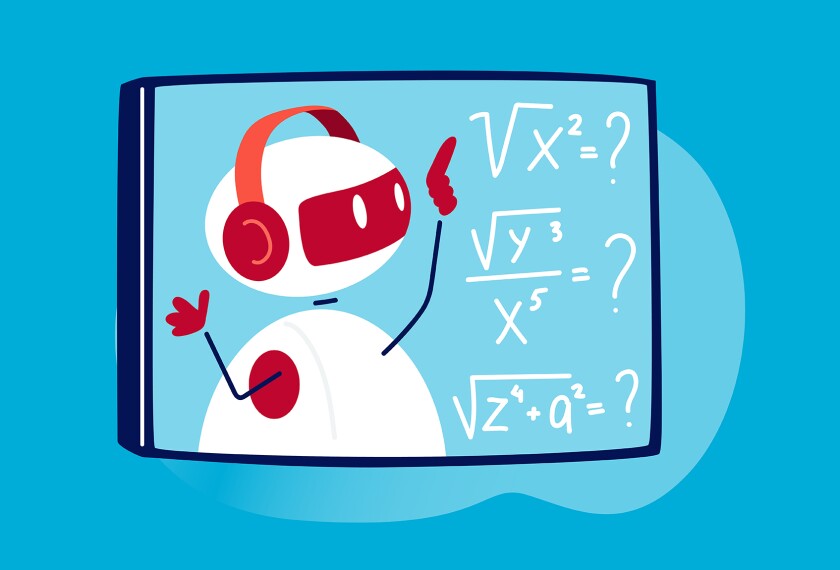
As schools around the country grapple with how to help students and teachers grasp the implications of rapidly developing artificial intelligence technology, Seckinger High School is developing a roadmap.
It is one of the schools in the country that has made teaching AI part of its mission—not just in a one-off class or two—but infused in every subject, from language arts to social studies to English classes for non-native speakers.
Seckinger, a public high school in Gwinnett County, Ga., just outside Atlanta, opened its doors to students for the first time last fall. Principal Memorie Reesman and three teachers sat down with Education Week as part of an online forum on AI to talk about the school’s AI focus.
Here’s a brief transcript, edited for clarity and brevity. You can also click above to see a video of the full conversation.
Not every student at Seckinger is likely to become an AI engineer in Silicon Valley. Why do future nurses or high school English teachers need to understand AI?
Scott Gaffney, social studies teacher: The freshman class I just got done teaching this past year is going to enter an economy in 2030 likely after their undergraduate degrees are completed, and 55 percent of the workforce by then is going to be completely different than the way it looks right now. Jobs are going to be converged, diverged, reclassified.
There’s going to be new skills and capabilities across the board. We’re in the midst of a new industrial revolution … Our young people need to understand how AI works, whether it’s data science, ethics, applied experience, mathematical thinking, and creative problem-solving programming. All of these things are very useful.
In addition to literacy across the curriculum, Seckinger offers some focused content classes, just on AI. What do those look like?
Jason Hurd, computer science teacher: We have a three-year artificial intelligence pathway. The state standards were approved about two years ago. To start that off, we brought in lots and lots of stakeholders from business, big universities down to small universities here in the state of Georgia, and formed this amazing team.
In my class, in the actual artificial intelligence pathway class, which is actually a computer science class, they’re going to be diving deep. We’re doing ethics, the history and evolution of AI, the programming involved in creating machine learning models.
We also offer things that are very much AI based in environmental engineering, mechanical engineering classes, regular computer science classes, ... but we have a certain spin on it at Seckinger in order to have that AI flavor.
AI is changing rapidly. How will Seckinger keep up?
Hurd: That’s kind of an exciting part for me as an educator. I’m not going to get bored … I’m learning and sharing these new things with students and helping us all to evolve.





